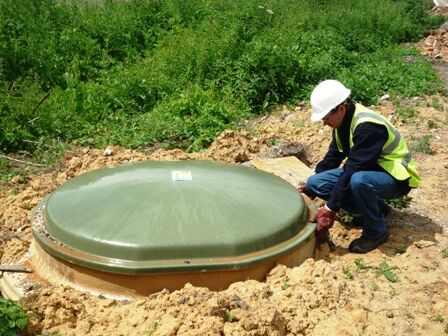As part of a number of ongoing efforts to improve the quality of water, as well as reduce pollution, new rules regarding the way septic tanks and small sewage treatment plants are regulated were implanted by the Environment Agency back in January 2015. Despite it being nearly a year however, people still remain a little unaware. Households and businesses with septic tanks or small sewage treatment plants are now fully responsible when it comes to meeting legal requirements and these are known as “general binding rules”. These have all been implemented purely to ensure systems are maintained to a high enough standard and prevent pollution. While most can and do follow the rules, using their septic tanks and treatment plants without permits, there are of course those in areas designated as environmentally sensitive by the Environment Agency and it’s in these areas where additional measures such as permits, are needed in order to really prevent pollution.
Septic tanks can be defined as tanks underground where solids will sink to the bottom, forming a sludge and allowing liquids to flow into a drainage field. It’s here that bacteria treat it as it works its way into the ground. These aren’t however, allowed to drain into any water courses. Small sewage treatment plants aren’t too dissimilar, however they use mechanical parts to aerate the bacteria. This makes them much more effective at treating the waste which subsequently means they can discharge into a field or flowing water nearby. Cesspits and cesspools are very different for the simple fact that raw sewage is stored within a sealed tank as opposed to being treated and then discharged. This means the general binding rules doesn’t cover them. They simply need to be emptied when full and mustn’t overflow or leak.
Under the General Binding Rules you must:
- Have all sludge in your septic tank or sewage treatment plant emptied on a regular basis by a registered waste carrier as well as ensure it doesn’t cause pollution (our annual tank empty can help with this).
- Ensure your system is maintained to avoid any faults. If problems should arise then they must be fixed immediately.
- You must speak to the Environment Agency before installing a new system. You’ll also need to speak to your local council to check that it meets planning requirements and regulations.
- If you sell your property, you’ll also need to inform the buyer in writing.
- You must call the Environment Agency’s incident hotline on 0800 80 70 60 if you’re at all concerned about a possible leak or fault that could cause pollution.
When releasing into the ground you must apply for a permit:
- For a well, a borehole or another deep structure.
- If you’re producing more than 2000 litres per day.
- If you’re within a groundwater source protection zone.
When releasing to surface water you must:
- Use a small sewage treatment plant which requires a permit if you plan on discharging more than 5000 litres per day.
For more information, simply contact us here at euroloo today. We’re only too happy to help clear up any confusion and offer advice on a subject matter we’re extremely familiar with.
